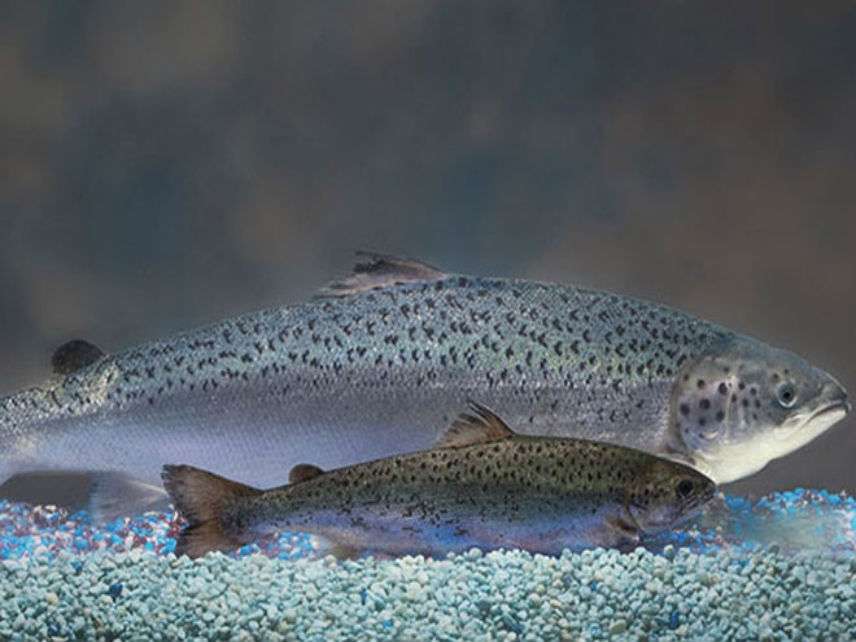FDA Finally Approves Genetically Enhanced Salmon—After 24 Years
A case of scientifically absurd regulatory hyper-precaution

AquaAdvantage salmon are finally being allowed to come to a fishmonger near you. It took a while.
By integrating a Chinook growth hormone gene into the genome of an Atlantic salmon, AquaBounty Technologies has reduced the fish's time to market from three years to 18 months. The AquaAdvantage salmon will be raised at a land-based recirculating aquaculture systems facility located in Indiana.
AquaBounty began the process of seeking FDA approval for this product way back in 1995. The agency's bureaucrats dawdled for years, developing protocols for genetically improved animals for human consumption, building their regulations around the absurd notion that such animals are the equivalent of veterinary drugs.
The company has doggedly pursued approval despite bureaucratic hypercaution and relentless opposition from environmentalists and the wild-caught fishing industry. The FDA finally approved AquaAdvantage Salmon as safe to eat in 2015, but it imposed an import alert that prevented the company from importing its salmon eggs into the country until the U.S. Department of Agriculture finalized its biotech food labeling regulations. Those regulations were issued in December, so the FDA has now lifted its import ban.
Other countries are not being nearly as slow as the U.S. to approve genetically enhanced livestock. AquaAdvantage salmon have been available in Canada for nearly three years. And in December, Argentina approved AquaBounty's faster growing tilapia. The company used CRISPR gene editing to promote muscle growth to increase the fillet size of its tilapia. Argentine regulators sensibly ruled that their agency's more onerous approval procedures for genetically modified organisms do not apply to AquaBounty's tilapia since the gene-edited fish do not contain any foreign DNA. Our FDA, alas, has reached the opposite conclusion. Thanks to all this regulatory confusion, some American researchers are now moving their projects to develop genetically engineered livestock offshore.
Personally, I dislike the flavor of salmon. But I plan to eat an AquAdvantage fillet as soon as I can legally lay hands on one.


Show Comments (53)